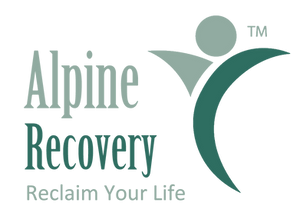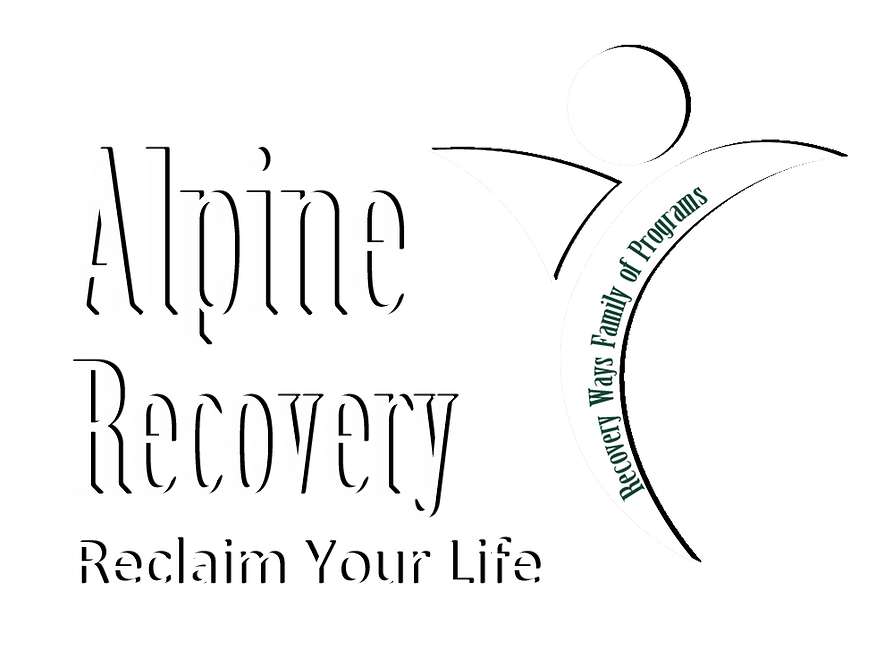Substance Abuse Treatment in Seattle WA
Watching someone you care about struggle with substance abuse can be a heart-wrenching and overwhelming experience. Substance abuse not only affects the individual but also ripples out to impact family, friends, and caregivers. If your loved one is beginning their recovery, your support can play a powerful role in their healing process. However, many people are unsure where to start or how they can truly make a difference. Seattle, WA, like many metropolitan areas, faces the rising challenge of substance abuse and overdose rates. Fortunately, the city also offers extensive resources and treatment options to combat these struggles. This guide explores some actionable ways you can support your loved one as they go through substance abuse treatment in Seattle WA and highlights essential steps for maintaining your own well-being.
Understanding Substance Abuse and Treatment in Seattle WA
To provide meaningful support, it’s essential to first understand what substance abuse entails and the treatment options available in Seattle. Substance abuse refers to the harmful or excessive use of drugs and alcohol, often leading to addiction—a chronic condition that alters the brain’s chemistry and creates a compulsion to use substances despite negative consequences to one’s health, relationships, or daily life. Addiction doesn’t happen overnight; it often begins with occasional use that escalates into dependency over time. Substance abuse in Seattle reflects national trends and frequently involves alcohol, methamphetamine, heroin, cocaine, and prescription opioids. These substances can have devastating impacts not only on the individuals using them but also on families, communities, and workplaces. Addressing substance abuse requires a comprehensive approach that includes prevention, education, and access to effective treatment programs tailored to individual needs.
Substance Abuse Treatment Options in Seattle
Seattle is home to a range of treatment options designed to meet diverse needs and recovery journeys:
- Detoxification Programs: These programs provide medical supervision to help individuals safely withdraw from substances.
- Residential Treatment Facilities: Ideal for those needing a structured environment to focus on recovery without external distractions.
- Outpatient Programs: Designed for those who require treatment while continuing daily responsibilities. These typically include therapy sessions and group meetings.
- Support Groups: Organizations like Alcoholics Anonymous (AA) and Narcotics Anonymous (NA) offer community-based support for people in recovery.
- Dual Diagnosis Treatment: Programs that address both substance abuse and co-occurring mental health issues such as depression or anxiety.
It’s vital to research these options and consult with professionals to determine the best approach for your loved one.
Ways to Support Your Loved One Through Substance Abuse Treatment in Seattle WA
Your role as a supportive figure during your loved one’s treatment is truly invaluable and can make a significant difference in their journey. Your presence and care can offer them a sense of stability during what is often a challenging and unpredictable time. Being there for them emotionally by listening, encouraging, and simply showing empathy can help ease their emotional burden. Supporting them physically, whether by attending appointments, helping with daily tasks, or providing a comforting presence, can remove some of the stress they may feel. Even practical support, like organizing medications or preparing meals, can go a long way in making their life easier. These efforts not only reassure your loved one but also provide them with the strength needed to focus on their healing. Here are some guiding principles and strategies to help you provide the right kind of support and create a positive, comforting environment for their healing process:
1. Educate Yourself About Substance Abuse and Recovery
Understanding the science and psychology of addiction equips you to better empathize with your loved one’s challenges and struggles. Addiction is a complex condition that affects both the brain and behavior, often making it difficult for individuals to break free without support. By learning about withdrawal symptoms, triggers, and relapse risks, you can gain valuable insight into what your loved one is experiencing. Familiarizing yourself with the treatment process in Seattle, including detox, counseling, and aftercare, helps you better anticipate what lies ahead and how you can provide meaningful support throughout their recovery journey.
2. Approach with Compassion, Not Judgment
Substance abuse is a disease, not a moral failing, and it’s essential to understand this distinction. People struggling with addiction need support and compassion, not blame or shame, as these reactions can often worsen feelings of isolation and hopelessness. Instead, focus on being a source of kindness, encouragement, and understanding. A non-judgmental approach creates a safe space that fosters trust, paving the way for open and honest conversations. By showing empathy and patience, you can play a crucial role in helping someone take steps toward recovery and regain control of their life.
3. Communicate Effectively
Building effective communication starts with active listening, a skill that requires patience and empathy. Give your loved one the space to express their thoughts and feelings without fear of judgment or interruption. This means truly focusing on what they are saying, rather than planning your response while they speak. Use supportive phrases like, “I understand how you feel,” or “That sounds really challenging,” to show that you’re engaged and validating their emotions. Avoid statements that might come across as dismissive or critical, such as, “You’re overreacting,” or “It’s not a big deal,” as these can shut down meaningful dialogue. Instead, create an open and safe environment where honest communication can thrive.
4. Provide Practical Support
Sometimes, small acts of kindness can make a big difference in easing the burden for someone in recovery. Offering to help with transportation to treatment sessions can relieve the stress of logistics, giving them one less thing to worry about. Assisting with household chores like laundry, cleaning, or grocery shopping can free up their time and energy to focus on healing. Preparing healthy, nourishing meals not only supports their physical well-being but also shows that you care. However, it’s important to always respect their privacy and boundaries—ask before stepping in and ensure your help aligns with their needs and comfort level. Even small gestures, when done thoughtfully, can provide meaningful support during their journey to recovery.
5. Attend Family Therapy Sessions
Many treatment centers in Seattle incorporate family therapy sessions into their programs, recognizing the crucial role family plays in the recovery process. These sessions aim to help family members better understand their roles and responsibilities in supporting a loved one’s journey to recovery. They also provide a safe and structured space to address and resolve past conflicts, misunderstandings, or lingering tensions. Through guided discussions and activities, families can rebuild trust and improve communication. Additionally, these sessions teach practical skills for offering constructive and empathetic support, empowering families to create a healthier and more supportive home environment that fosters long-term healing.

6. Encourage Healthy Habits
Engaging in positive activities can play a crucial role in supporting recovery and promoting overall well-being. Encourage your loved one to explore healthy outlets such as regular exercise, which can help reduce stress and boost mood, or yoga and meditation, which are excellent for cultivating mindfulness and relaxation. Creative outlets like painting, writing, or music can also provide a therapeutic way to express emotions and channel energy positively. Suggest trying out new hobbies or interests to spark excitement and provide a fresh perspective. Additionally, joining local Seattle-based groups or community programs can help them build meaningful connections and a supportive social network outside of their substance use circle, creating a stronger foundation for long-term recovery.
7. Remain Patient and Supportive
Recovery is rarely a linear process and often comes with its fair share of challenges. There will be ups and downs, moments of exciting progress, and times when setbacks might feel overwhelming. It’s all part of the journey, and every step, no matter how small, matters. Celebrate their achievements, whether it’s reaching a significant milestone or simply taking a small step forward after a tough day. Acknowledge and remind them of the hard work, resilience, and effort they’ve invested in their recovery. Your encouragement and support can make a world of difference as they navigate this path.
Taking Care of Yourself While Supporting a Loved One
Supporting someone through substance abuse treatment in Seattle WA can be incredibly demanding, both emotionally and physically. It requires patience, understanding, and a willingness to be there during some of the most challenging moments. However, to be the best support system for your loved one, it’s essential to also prioritize your own well-being. Caregiving can take a toll, and burnout, stress, and emotional exhaustion are common if self-care is neglected. Taking time to recharge, seeking support from friends, family, or professional counselors, and setting healthy boundaries are all crucial steps to ensure you can continue offering meaningful support without compromising your own health.
1. Seek Emotional Support
Join support groups, such as Al-Anon or Nar-Anon, which are specifically designed to help friends and family members of individuals in recovery. These groups provide a safe and welcoming environment where you can share your experiences, challenges, and emotions with others who truly understand what you’re going through. By connecting with people who have faced similar struggles, you can gain valuable insights, coping strategies, and a sense of community. Sharing your journey and hearing others’ stories can be incredibly validating, comforting, and a source of renewed strength to navigate the complexities of supporting a loved one in recovery.
2. Practice Stress Management
Use stress-relief techniques like mindfulness meditation, where you focus on the present moment to calm your mind, or deep breathing exercises, which can help lower your heart rate and reduce anxiety. Journaling is another great option, allowing you to process your thoughts and emotions by putting them down on paper. Taking a break to step outside for a walk or spending time in nature can work wonders as well—Seattle offers plenty of beautiful outdoor spaces like Discovery Park, Green Lake, or the Burke-Gilman Trail, where you can unwind and refresh your mind while enjoying the scenery.
3. Set Boundaries
Setting boundaries is critical to maintaining a healthy relationship, especially when supporting a loved one who may be struggling. Boundaries help define what is acceptable and what isn’t, ensuring that you can fully support your loved one while still protecting your own emotional well-being. They prevent you from enabling destructive behaviors or taking on undue responsibility for their recovery, which is a process they must ultimately navigate themselves. By setting clear and respectful limits, you create a space for mutual understanding and healthier interactions, allowing both of you to grow and maintain balance in the relationship.
4. Take Breaks When Needed
Being a constant source of support requires energy, and it’s important to remember that you can’t pour from an empty cup. Take time to step back and recharge by engaging in activities that bring you joy and restore your energy. Whether it’s getting lost in a great book, catching up with friends over coffee, spending time in nature, or indulging in hobbies like painting, gardening, or playing music, these moments of self-care allow you to refocus and stay resilient. Prioritizing your own well-being not only helps you feel refreshed but also ensures you can continue to be there for others.
Conclusion
The road to recovery from substance abuse is often long, challenging, and filled with ups and downs, but it is also a journey filled with hope and potential. With the right support system in place, your loved one can make meaningful, lasting changes in their life. As a supporter, you can play a pivotal role in their recovery by taking the time to educate yourself about substance abuse and its effects, showing empathy and compassion during difficult moments, communicating openly and effectively, and encouraging the development of healthy habits, such as exercise, creating a structured routine, or finding new hobbies. If you or your loved one need additional guidance don’t hesitate to reach out to us today by calling 1 (360) 658-1388 or click Alpine Recovery. From counseling services and rehabilitation centers to community support groups and hotlines, there are many options available to help navigate this challenging path. Recovery might be daunting, but with the right tools, a strong support network, and a dedicated community, it is absolutely possible. Together, we can face these challenges head-on and foster a healthier, more supportive environment for everyone.



